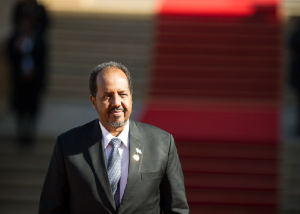Working Our Way to Happiness -
If we don’t train ourselves to be happy right here on earth, we might miss out on the unique opportunity to enjoy the most essential purpose in life.
And if we are waiting to go to heaven before we become happy, we must begin listing the things that we think will make us happy in heaven. Then we will recognize that everything that we think will make us happy in heaven is right here on earth.
Ironically, the things that can make us really happy do not include any of those things on our list. Rather, what our list contains is the very opposite of those things that can make us happy. And this discovery should then lead us to make the surprising albeit enlightened conclusion that we have no clue about what can make us really happy in life.
This week, I had the opportunity to travel with my client to a small city in Texas to help him deal with a criminal case. On our way, he kept on talking about all the setbacks he was experiencing in his life. He then continued to apprise me of how happy he would be if he were to win the lottery. He was saying that he would buy acres of land and enter into a real estate business, building huge houses and leasing them out for profit. When I grew tired of listening to him, I asked him whether he thought those things would indeed make him happy.
“Yes indeed Counselor. Of this I am very sure.” He bravely answered.
“Do you think people with lots and lots of money are indeed the happiest people on earth?”
He wisely answered that those people were not necessarily the happiest, but at least their problems were lesser in life than those that are poor.
“Bro, have you ever met a truly happy person in your entire life?” I asked.
“I don’t remember. I guess not. However, the Bible tells us that the only place where we can be happy is in heaven. This world is full of trouble for both the poor and the rich.
“In the whole of the Bible, who was the happiest person?” I asked.
“Well, I think Jesus may have been the happiest.” He answered.
“I wouldn’t call somebody who was crucified at the young age of thirty-three happy; but I will not belabor the point. Who else do you have in mind?”
“Maybe Paul.”
“That man was always complaining of his infirmities, imprisonment and suffering. But he might have been happy in the mere contemplation of heaven, who knows. Who else?”
“Maybe Abraham. He was blessed with a lot of wealth.”
“Did he tell you that he was a happy man?”
“Not exactly. But I am guessing he did not complain much. Why, he was even willing to sacrifice his own son when God asked him to.”
“That may even mean that he was not free to make his own choices. He had to do whatever somebody told him to do without question. Such a man cannot be happy. But we can let that pass. Who else do you think had everything in the Bible-money, power, knowledge and wisdom-and should therefore have been the happiest man?”
The gentleman scratched his head for a long time and stated rather frankly that he had run out of names of happy people in the Bible. I then asked him whether there was an example of a happy kingdom anywhere in the Bible. He answered that there was no kingdom as such except in the Garden of Eden which humans lost rather quickly, but one has been promised to the righteous after we die.
“If there was no indisputably happy person or no happy kingdom in the Bible, it follows that whatever promise of happiness we have in the good book is per se abstract, and can only be understood by a recourse to a higher level of thinking.”
The gentleman was quiet for a moment, mulling over what I had said; then as if deciding that it was not worth his while to argue with a lawyer representing him pro bono, he made a wry comment on how scenic the Texas roadside was and pretended to fall asleep.
But to the point, when we conceive of heaven in terms of wealth, power and intellectual accomplishments, we can use King Solomon as a cautionary tale to explain that these things do not necessarily make us happy. We are told that the man married seven hundred wives and had three hundred concubines. We are also told of his gold and silver, that they were like stones in his kingdom. We are told of his construction of the glorious temple, together with his astute commercial activities. Extra-biblical accounts also romanticize his beautiful gardens and even his ability to communicate with animals. And if Solomon had wisdom and power and wealth, then we could conclude that he must have been a very happy man because when we conceive of the things that will make us happy, we construe them in terms of the types of things Solomon possessed. At least I do. I want to achieve a higher degree of intellectual accomplishments and have wealth and power enough to be designated as well endowed.
But I am no fool to imagine that when I have these things, then I will be happy in life. If indeed, these things made for happiness, we should have the rich and the powerful and the wise proclaim themselves the happiest. But we know from experience that among this class of people, suicide and depression occur with more frequency than among the poor.
In fact, there are many people who are better off being what they are because as soon as they become rich and knowledgeable or powerful, they will become miserable. And so it was with King Solomon who was pushed to the edge of misery by his endowments. We know this because if a person takes a pen and paper to write something akin to the complaints set out in Ecclesiastics, then the person is no doubt experiencing the most heinous of depressions and needs all the psychological help he can get.
In Ecclesiastics, Solomon describes all his knowledge and power and glory and wealth and accomplishments and states that these are all vanity of vanities. And by this apt description of the enormous wealth and worth he was seized with which were incomparable with any person before him or after him, we can safely conclude that Solomon had all the things that we usually spend our time and effort to acquire on earth, but was still a very unhappy person.
And so it will be with us as we pursue worldly knowledge and wealth and power unless we pause to reflect on what made Solomon unhappy in spite of his power, wealth and worth. And the answer lies in his extreme selfishness. No man can be free of the accusation of selfishness who decides to consort with one thousand women. And just like his father before him who killed his soldier and took over his wife, Solomon had a passion to amass that to which he was not entitled. He imposed forced labor on the people and taxed them heavily to enrich his treasury. That is why after his death, the kingdom became divided under the rule of his son.
So the selfishness of King Solomon and his incapacity to share with others poisoned the opportunity he had to be happy by application of his power, wealth and supervening intellectual capacity. In fact, we don’t have any record that Solomon fed the poor or took care of the widows or set free the oppressed. All we know is that he had too much power and knowledge and glory. And in this shortcoming lies the cause of Solomon’s unhappiness and the reason why other similarly situated people are equally unhappy. Like the Dead Sea, these people take in too much of everything and give nothing back, and thus become toxic.
The object lesson here is that our happiness has nothing to do with how much we take in, but how much we give out. So the notion that we will become happy through our acquisition of wealth or power or knowledge is hereby debunked. It is rather the opposite: the more we share and give and help and heal, the happier we will be in our lives.
And even in our deprived state, we will discover that Solomon had too many things but was quite poor in the things he needed to become a happy man. Like us, what he construed as a source of happiness turned out to be the poison pill of his misery. Many of his writings praised knowledge and wisdom such as in “The Proverbs”. And the others also praised women, such as in his songs, but few expressed his gratitude to the God that conferred on him his wealth and knowledge and power. And therein lies his absence of gratitude and appreciation for all that he possessed. Indeed, in the end, so ungrateful was he about them that he declared all of them vanity of vanities and a trouble to the spirit.
We can therefore argue that in the lack of gratitude and appreciation for the things we have lies the source of our unhappiness. It is too easy for us to emphasize too much about the faults we have instead of appreciating the numerous blessings in our lives. When we were young, we had some notions of the good lives we would love to live when we were being raised in the forest just like our ancestors, and when the day of our achievements came, we overlooked our blessings and still complained of how stressed we are in life. And that is where the problem is; because if we think about where we have been in the pits, and how we have been raised to the heights, we will see that all of us have many things to be happy about, but we have just refused to count our blessings, and have been counting our curses. And when God gave us all our heart’s desire, we chose, like Solomon, to say that they are nothing, and therein lies our misery.
And the mystery to our happiness is to overturn this negative outlook we have, and to have an attitude of gratitude even while we trudge on to the higher goals of our vision. If we are looking for all the things that should make us happy, we will find them in our health as well as in our sickness, or in our wealth as well as in our poverty; or in our knowledge as well as in our lack thereof; or even in our accomplishments as well as in our frustrations. And if we think about it, we will conclude that those who are healthy are not necessarily happier than those who are sick; and that those who are wealthy, are not necessarily happier than those who are poor; and that those who are knowledgeable are not necessarily happier than those who are ignorant; or that those who have achieved the most in life are not necessarily happier than those who are non-achievers.
In a sense therefore, we are all capable of a quantum of happiness in our lives no matter our situation, but we must do the work that will bring into being this happiness. And that work, as Nelson Mandela said, has to do with all the good we do for others, and has nothing to do with what we do for ourselves. And as regards the kingdom which we incessantly await, Jesus himself said in Luke 17:21 that it is within our hearts. And to my mind, the heart within which this kingdom dwells is the one that has eschewed all evil and is busy doing the most good to the most people at the most time. It is a heart that has at its center love for all and ill-will for none, a heart that is a giving and a forgiving heart, working its own acts of gratitude and inquiring of its God to show him all the good he can perform and all the evil he must eschew……..a heart that is working incessantly toward the goals of human peace, well-being, co-existence and self- sacrifice. Therein lies the secret to our happiness here on earth and even hereafter.
Samuel Adjei Sarfo, Doctor of Jurisprudence, is a general legal practitioner in Austin, Texas, USA. You can email him at sarfoadjei@yahoo.com
Opinions of Thursday, 27 August 2015
Columnist: Samuel Adjei Sarfo















